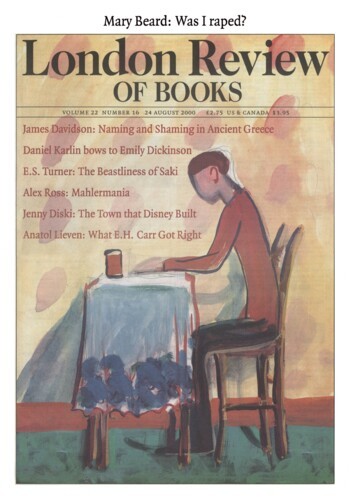The Long Home
I hadn’t been back in twenty years
and he was still here, by the fire,
at the far end of the longest counter
in Aberdeen – some say Scotland.
Not many in, and my favourite time:
the dog-watch; the city still working,
its tortoiseshell light just legible
in the smoked windows,
and through the slow delay of glass
the flutter of the streetlights
batting into life.
The firewood’s sap
buzzing like a trapped fly,
the granular crackle of a Green Final
folded and unfolded,
the sound of the coals
unwrapping themselves like sweets.
He only looked up when the barman
poured a bucketful of ice
into the sink, like a tremendous
burst of applause.
He was drinking Sweetheart Stout
and whisky, staring into the glass
of malt as if it were the past, occasionally
taking a pull on the long brown bottle.
I remember him telling me,
with that grim smile,
‘I’m washing my wounds in alcohol.’
I liked a drink too,
but would always leave before him,
walking home, as if on a wire.
I’d heard what had happened,
but wasn’t ready for the terrible wig,
all down at one side, the turn
in his mouth and his face’s
hectic blaze. He’d left here so bad
he could barely stand.
He’d got through his door, into his house
and passed out for the night,
sleeping like a log with his head in the fire.
The Signal Box
In these ember months of sinking fire
what light there is
is held in water:
beaded in the trees or inlaid
silver in these sodden fields.
The morning light is zinc; the evening, soy.
From here I watch
for trains that never come,
on the overgrown line running east
under beechwood and a tarmac road,
west to a filled-in wall.
I watch for signs.
At a glass table in a room
that’s three sides glass, the light
bends in and is stored:
a flask of fire above the swamped land;
cold-frame or mirador,
more lighthouse, now, than station.
Better here than on the ghost train
– leaving town as the crowds
gather for the parade –
my empty carriage
pulling away through flags
and what sounds like applause.
Better here by myself, as night falls,
better this
than a life spent
wanting to be somewhere else:
neither the place I’m leaving
nor the place I’m leaving for.
I harbour here, becalmed;
contented behind glass.
Not the end of the line, but something
more singular: some property left behind.
Form without function: a redundancy
becoming itself a sign.
Send Letters To:
The Editor
London Review of Books,
28 Little Russell Street
London, WC1A 2HN
letters@lrb.co.uk
Please include name, address, and a telephone number.

